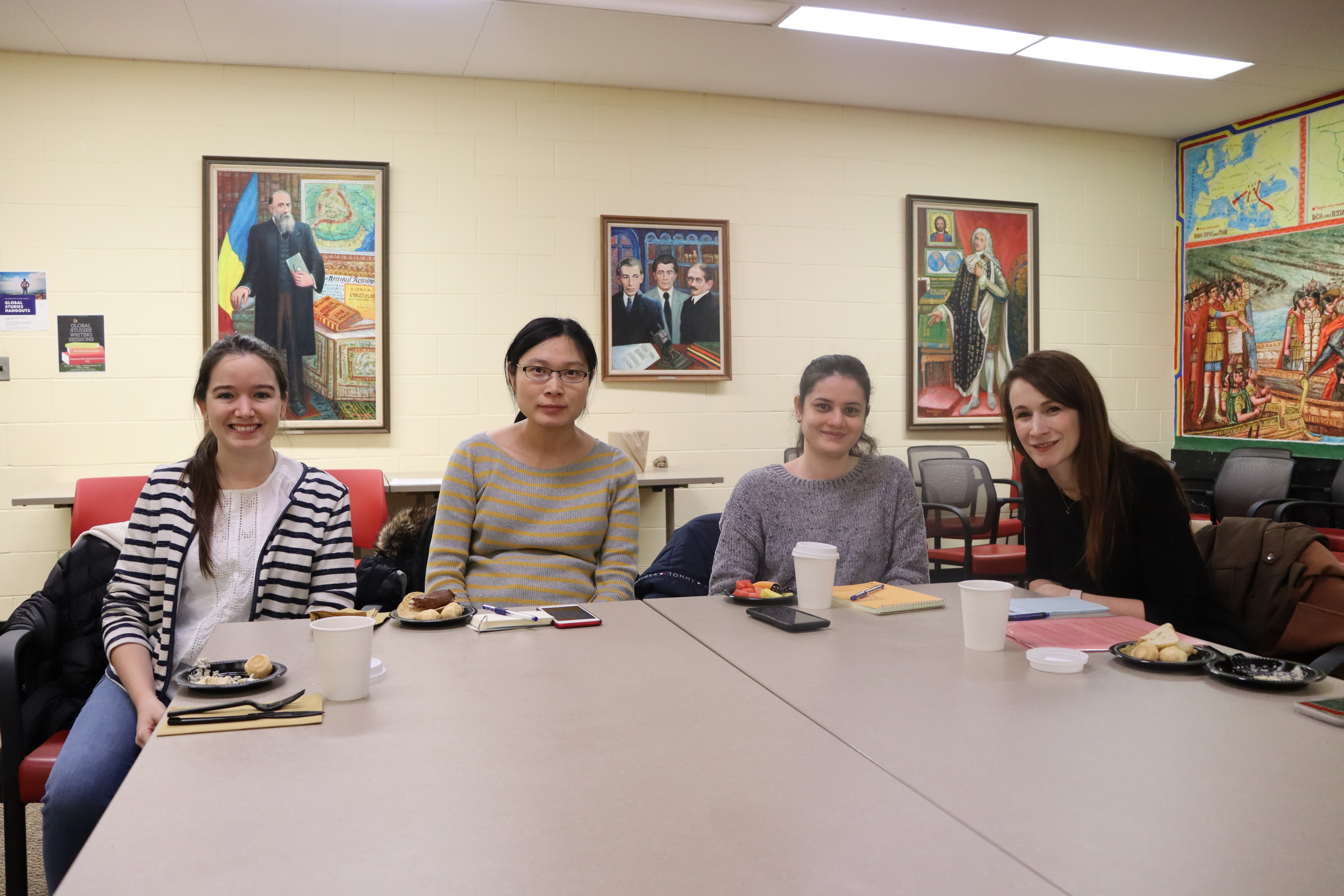International spouses and partners program provides support for those new to campus and country

Fitting in at a new university, in a new city in a new country isn't easy. Ask any of Wayne State's 1,500 international students and they'll tell you about the challenges of learning a new language and culture while mastering an educational system different from the one they knew at home.
It is doubly hard on the spouses and partners that come with them. For the most part, they can't work and they aren't taking classes, so meeting people and acclimating to the U.S. can be doubly difficult. That's where the new Spouses and Partners of International Students and Scholars Program can be of help, making the transition easier and less lonely for newcomers.
"It's wonderful knowing I'm not the only one in this situation," says Valentina Palomer from Chile, whose husband is doing a post-doctoral gynecology program at WSU. "We are trying to make a new life without our networks, without family or friends and without working. It's a very challenging adjustment, so having the ability to meet people and make friends is incredible. I really enjoy this program." Palomer is also a graduate of the English Language Institute program.
The group was created by Laure Bordas-Isner, an adviser in the Office of International Students and Scholars. A native of France, the program was inspired by her experiences with similar programs at other universities. She also hosts International Coffee Hour, a bi-weekly social gathering for international students and scholars and anyone interested in getting to know WSU's international audience.
"A lot of international scholars, students and employees come with their spouses," she says. "The idea is to give them a place to meet, eat and socialize. It also helps them work on their English, as they aren't able to just use their native language."
Sessions generally begin with Bordas-Isner offering up a discussion topic, usually in the form of a news article or a podcast. The sessions are relatively unstructured, and participants dictate what they do for the duration of their stay.
"It's a small program, 10 to 15 spouses meeting every other week," she says. "Right now, we're waiting for the program to be more established before we branch out. Ideally we'd like to have more meetings with specific interests and to meet outside of Wayne State University." She suggested group trips, or meetings based around different sub-topics as possibilities once more people begin participating.
While she hopes to expand the program, Bordas-Isner says she doesn't want it to become too structured to the point where it pushes people out. "We want to tailor it for them," she says. "We want people to feel comfortable bringing their kids, for example. This is meant to be a group meeting, not a classroom setting."
Bordas-Isner invites anyone interested to attend at least one session. "You have nothing to lose by coming," she says. "You don't have to stay for the whole time, you can get what you need out of it. You will meet people from different countries, but who are in a similar situation as you."
Check the OISS events calendar to see when the next Spouses and Partners Program session is being held, along with other events from OISS.
By Jacob Stocking, OIP communications associate.
The Office of International Programs leads Wayne State's global engagement by creating opportunities that foster international education and research, facilitate the exchange of individuals and ideas that promote global competencies and citizenship, and provide resources that support the expansion of the university's global agenda. Follow us @WayneOIP.